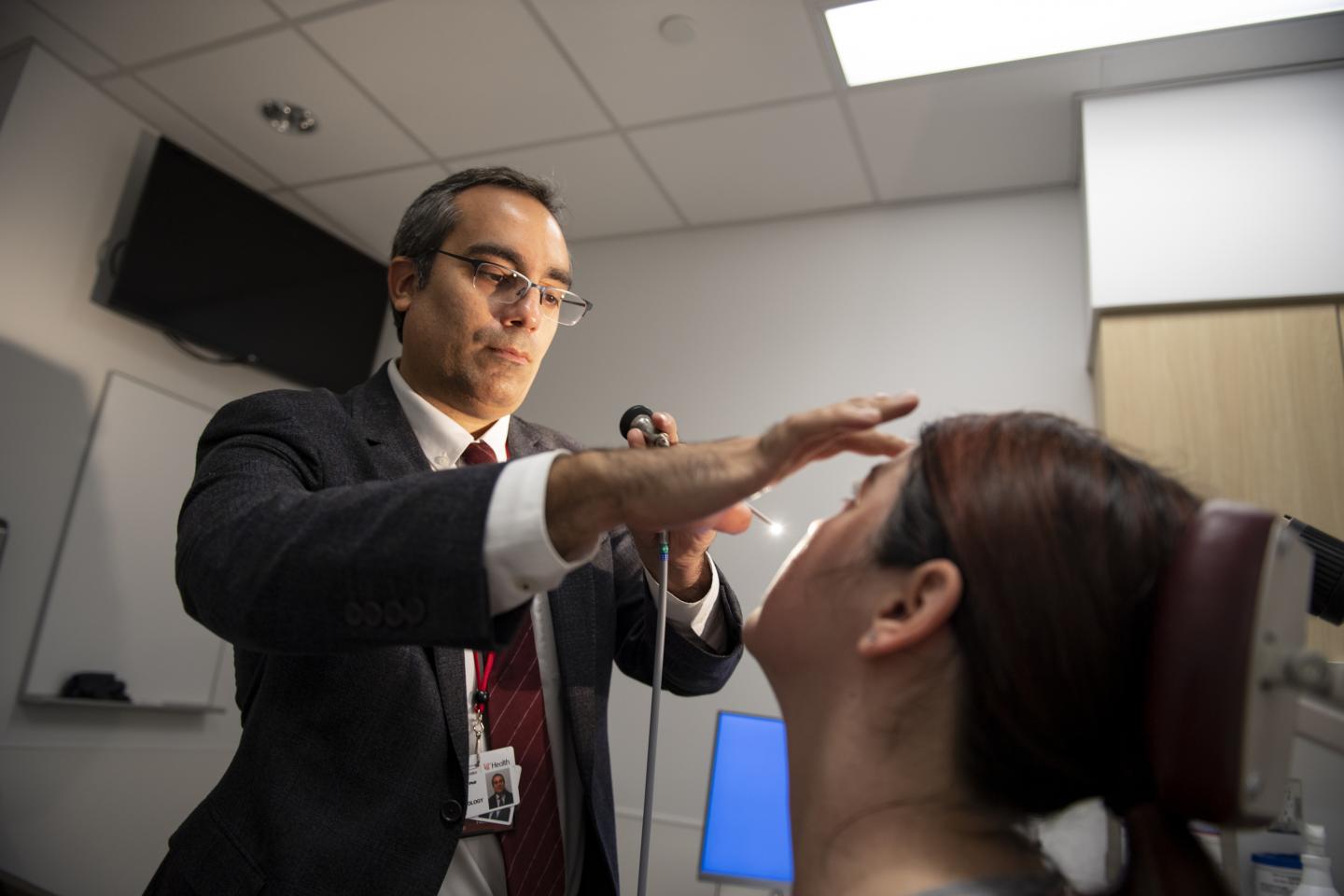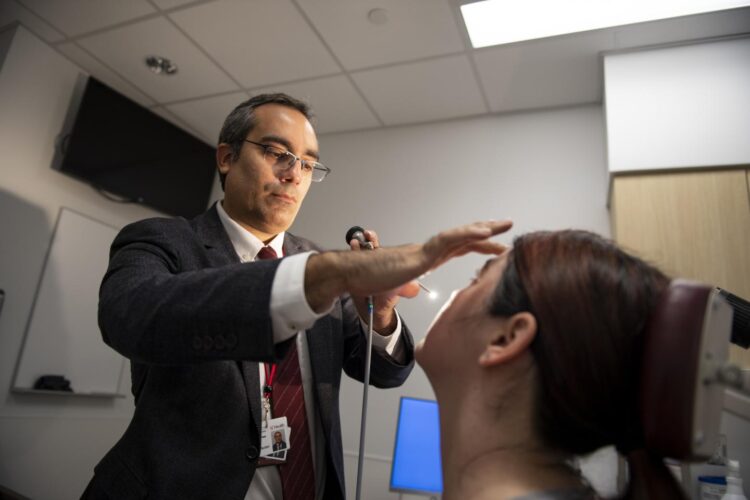University of Cincinnati researcher says antiviral treatments may help most if patients identified early

Credit: Colleen Kelley/UC Creative + Brand
A University of Cincinnati researcher says a study of COVID-19 patients shows loss of the sense of smell is most likely to occur by the third day of infection with the novel virus. Most of these patients are also experiencing a loss of the sense of taste.
The prospective, cross sectional telephone study examined characteristics and symptoms of 103 patients who were diagnosed with COVID-19 over a six-week period at Kantonsspital Aarau in Aarau, Switzerland. Patients were asked how many days they had COVID-19 symptoms and also asked to describe the timing and severity of loss or reduced sense of smell along with other symptoms.
At least 61% of the patients reported reduced or lost sense of smell, says Ahmad Sedaghat, MD, PhD, an associate professor in the UC College of Medicine’s Department of Otolaryngology-Head and Neck Surgery and an UC Health physician specializing in diseases of the nose and sinuses, who was the principal investigator of the study. The mean onset for reduction or loss in the sense of smell was 3.4 days.
The findings are available online in the scholarly journal Otolaryngology-Head and Neck Surgery. The first author of the research is Marlene Speth, MD, at the Switzerland hospital.
“We also found in this study that the severity of the loss of smell is correlated with how bad your other COVID-19 symptoms will be,” says Sedaghat. “If the anosmia, also known as loss of smell, is worse, the patients reported worse shortness of breath and more severe fever and cough.”
“Should that concern patients?” says Sedaghat. “The relationship between decreased sense of smell and the rest of the COVID-19 is something to be aware of. If someone has a decreased sense of smell with COVID-19 we know they are within the first week of the disease course and there is still another week or two to expect.”
Sedaghat says an experimental antiviral drug, remdesivir, developed by Gilead Sciences to initially treat Ebola, is showing some promise in treating COVID-19 patients. It has been granted emergency approval by the U.S. Food and Drug Administration to treat severely ill COVID-19 patients, since a National Institutes of Health-sponsored clinical trial showed that patients experienced a shorter recovery time when taking remdesivir compared to a placebo.
Sedaghat says that having an available antiviral treatment for COVID-19 may mean it’s much more important to have an indicator of prognosis and how far the disease has progressed in patients.
“Antiviral medications have historically worked best when given early during a viral infection. The same is hypothesized to be true for remdesivir,” says Sedaghat. “Our study indicates that a decreased sense of smell may be an indicator of patients early in the disease course as well as those who may go on to develop more severe symptoms, like shortness of breath, later on. “Once remdesivir becomes more widely available, decreased sense of smell may therefore identify patients who would be excellent candidates for the medication,” he says.
Sedaghat cautions that while the loss of smell is an indicator of COVID-19, it’s not the only factor. “When you start to experience serious symptoms of COVID-19 which include shortness of breath and respiratory distress, that’s when you should become alarmed,” he adds.
The study also found that younger patients and women in the study were also more likely to experience a decreased loss of smell, says Sedaghat.
Also, about 50% of study patients experienced a stuffy nose and 35% experienced a runny nose. Sedaghat says this is important because previous studies indicated that these nasal symptoms were rare in COVID-19 and these symptoms were attributed to allergy and not the novel coronavirus.
“This just means that greater awareness is needed of COVID-19’s nasal symptoms so people are not running around sneezing in public and thinking it is okay since this is just allergies,” says Sedaghat. “It very well could be COVID-19 and wearing masks as protective gear for others you encounter is a good idea.”
Sedaghat says understanding more about loss of smell and COVID-19 is important for a public health perspective.
“No one is going to die because of a loss of the sense of smell and it’s not the symptom that will kill anyone,” says Sedaghat. “However, it is important because it helps us to identify these COVID-19 patients as asymptomatic carriers so they don’t spread the disease to others. Now we can potentially identify them early during the disease to start antiviral medications and ultimately maximize our ability to effectively treat these patients.”
###
Other co-authors of the study include Isabelle Gengler, MD, UC Department of Otolaryngology-Head and Neck Surgery, along with Thirza Singer-Cornelius, MD; Michael Oberle, PhD, and Steffi Brockmeier, MD, all from Kantonsspital Aarau.
Funding for the study came from Kantonsspital Aarau, Aarau, Switzerland.
Media Contact
Cedric Ricks
[email protected]
Original Source
https:/





